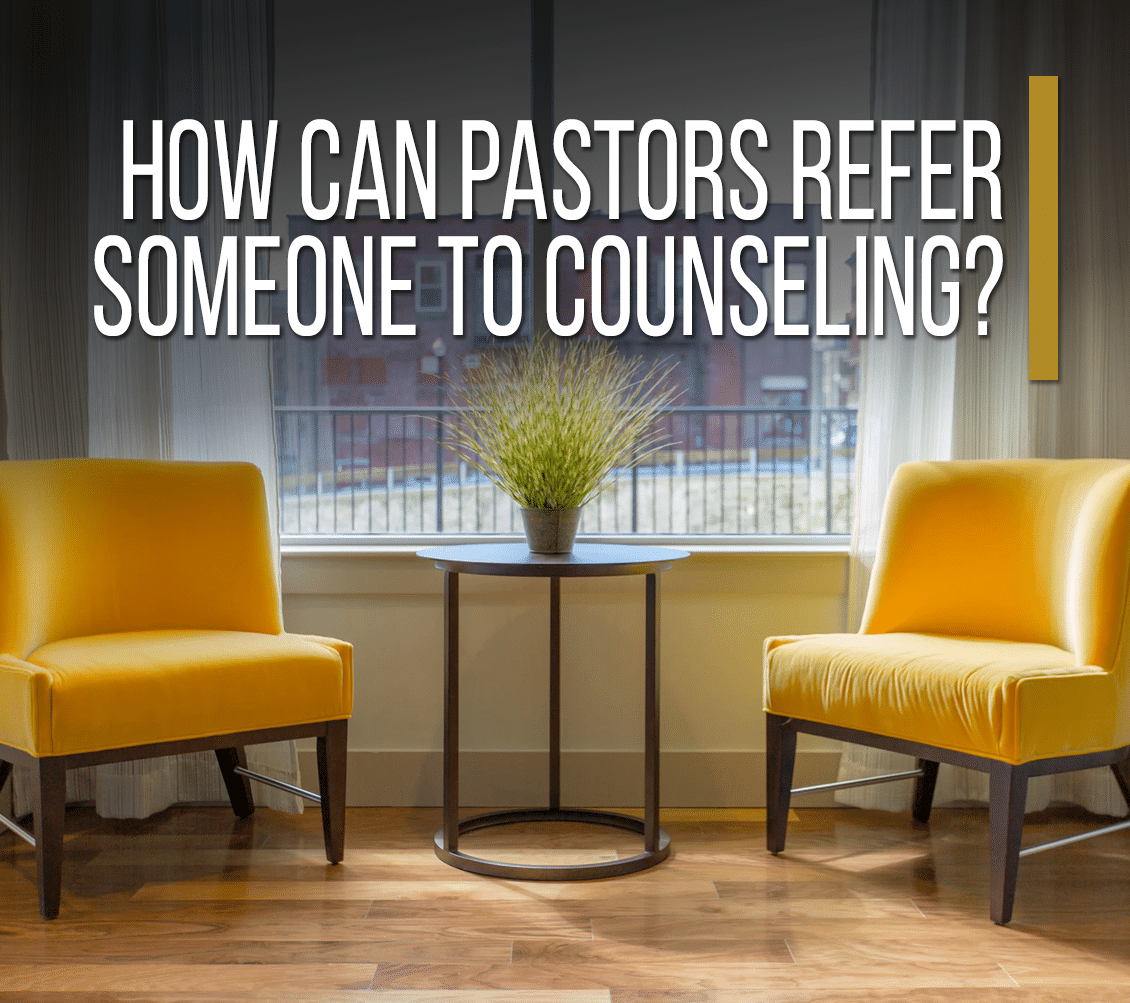Churches and pastors are truly at the forefront of interacting with people, especially in America. You get to sit and talk with people about sin, grace, redemption, and edification. But many times the scope of a pastor’s knowledge becomes limited when someone comes in feeling suicidal, having a manic episode, or struggling with an addiction to drugs. It’s at this time you need to be helping connect the person to a professional counselor who is trained, but how can pastors refer someone to counseling?
Per a LifeWay Research survey done in 2017:
- Only 8% of church leaders and 9% of church members offered support to someone prior to the individual committing suicide.
- For those who grieved after a loved one committed suicide
- 49% of churches prayed with the family
- 41% visited the family
- Only 11% connected the family to a professional counselor.
Another survey done by LifeWay Research in 2013 stated:
- About 60% of Americans disagree that Bible study and prayer alone can overcome mental illness.
- Nearly 70% of Americans believe churches would welcome them if they had a mental health issue.
Finally, according to Amy Simpson, “25 percent have gone first to a member of the clergy. This is a higher percentage than those who have gone to psychiatrists, general medical doctors, or anyone else.” (KeyMinistry.org)
At this time, pastors need to look to make a refer for counseling. I’ve said it before and I’ll say it again:
Know your limits and know what resources are available to you now before you need them.
How To Make A Referral To Counseling
The process of referring someone to counseling is quite easy. The difficulty might be in what you do not know needs to also be apart of it. I want to give some ideas of how I as a professional counselor can see the Church helping this new client as they get involved.
Where To Refer For Counseling
The referral starts with understanding if it is a crisis or not. Inpatient treatment is for people who are actively suicidal or homicidal and need intensive needs. Let the mental health professional assess it, but if you are concerned, take them to a crisis team in your county or emergency room.
Outpatient is for those who have serious mental health and substance use concerns and need to proactively work on getting rid of the problems. For people who have insurance, look for a phone number on the insurance card called Member Services to find places that take the individual’s insurance. For those who do not have insurance, look at the community’s mental health centers and ask if there are sliding scale fees that might provide reduced or free services based on income.
Some people may want only Christian counseling. This can be difficult, especially in rural areas where there are no explicit Christian counseling centers. Do not worry though, spirituality is an important component in a person’s recovery and the pastor is the subject matter expert that may need to be a part of the counseling process.
What You Might Not Think To Consider
Here are a couple of things you as the pastor may want to consider discussing with the client when making the referral:
- Ask how you can be apart of the counseling process. Always assume there is more that can be done, but let the individual invite you into the process. Ask, ask again in a week, ask again in a month.
- Offer respite or transportation. People who go to counseling may need help with respite while they work individually on their mental health symptoms. Help provide or find childcare for those who may need it or transportation who may not have it. These simple acts can be the difference between a client attending or not.
- Ask for a release of information. Professional counselors are bound by HIPPA that does not allow mental health professionals to communicate with anyone without written permission from the client. Even if you bring them to their intake assessment and say hi to the counselor, you do not get access. You also need this to be allowed to come back into session with the client.
- Talk with the counselor. See how you can support and reinforce positive skills and healthy living from the position of the church. This includes talking with the client but also talking with the counselor. If you are lucky enough to get the opportunity, you may even be able to sit in and offer support in session with fears and worries that may include mental health and spiritual components.
- Pray for the client and counselor. This is the most important. If you take the client to their session and don’t join in, pray while you wait or take care of their children. Pray for the client to be open and hear, pray for the counselor to be attentive and be given God-inspired words. Pray for home life and social life. Pray for their souls and that Satan would stay away. Allow the counseling session to become a sacred space.
There are more things that could be done beyond this, including small groups, discipleship, making casseroles, and more, but this is the beginning. If you do this, you are going to empower and encourage this individual, giving them so much more opportunity for success than the next client that counselor sees.
